Hydroponics, the art of growing plants without soil, has revolutionized the way we cultivate our favorite greens. It’s a remarkable method that offers a host of benefits, from faster growth to better resource efficiency. In this guide, we’ll introduce to you the guide to craft your own DIY hydroponics, specifically the PVC pipe system, along with some additional tips for your hydroponic success.
Materials Needed
- PVC pipes (4-inch diameter is common)
- End caps
- PVC connectors
- A submersible water pump
- A reservoir (like a large plastic tote)
- Growing cups or pots
- Anutrient solution
- Growing medium
A Tutorial For Beginners
Step 1: Cut PVC Pipes
Cut the PVC pipes into desired lengths to create your growing channels. These channels will hold the plants. Make sure they’re sloped slightly to allow water to flow.
Step 2: Assemble The Pipes
Assemble the pipes, connectors, and end caps. One end cap should remain open for easy access, and the other will serve as the water inlet.
Step 3: Create A Stand
Create a separate PVC stand to support the growing channels.
Step 4: Set Up A Water Pump
Set up the submersible water pump inside the reservoir and connect it to the open end of your PVC system. Ensure it’s immersed in the nutrient solution.
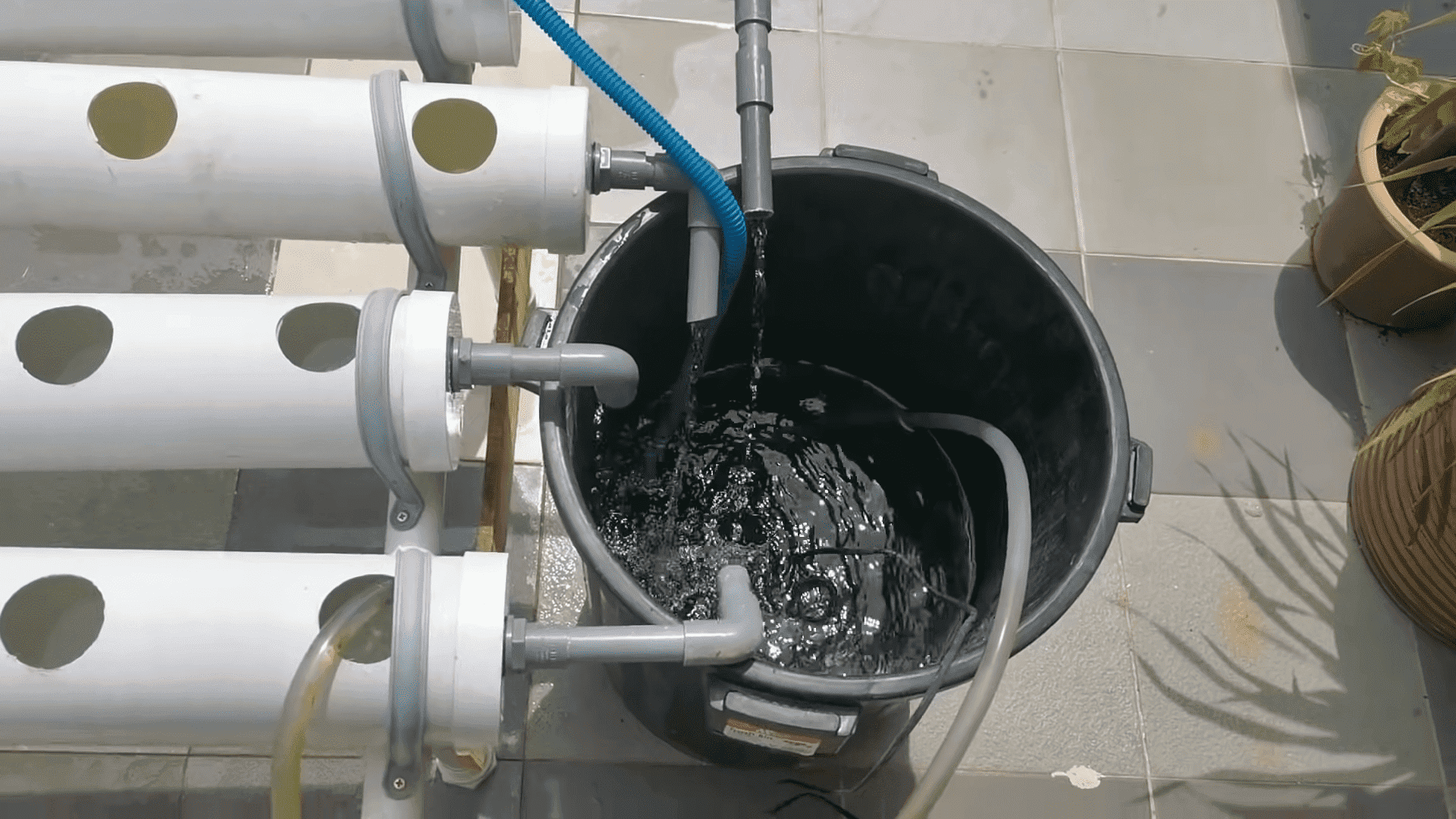
Step 5: Plant Your Garden
Place the growing cups or pots inside the channels and fill them with your chosen growing medium. This can be coconut coir, perlite, or another suitable material.
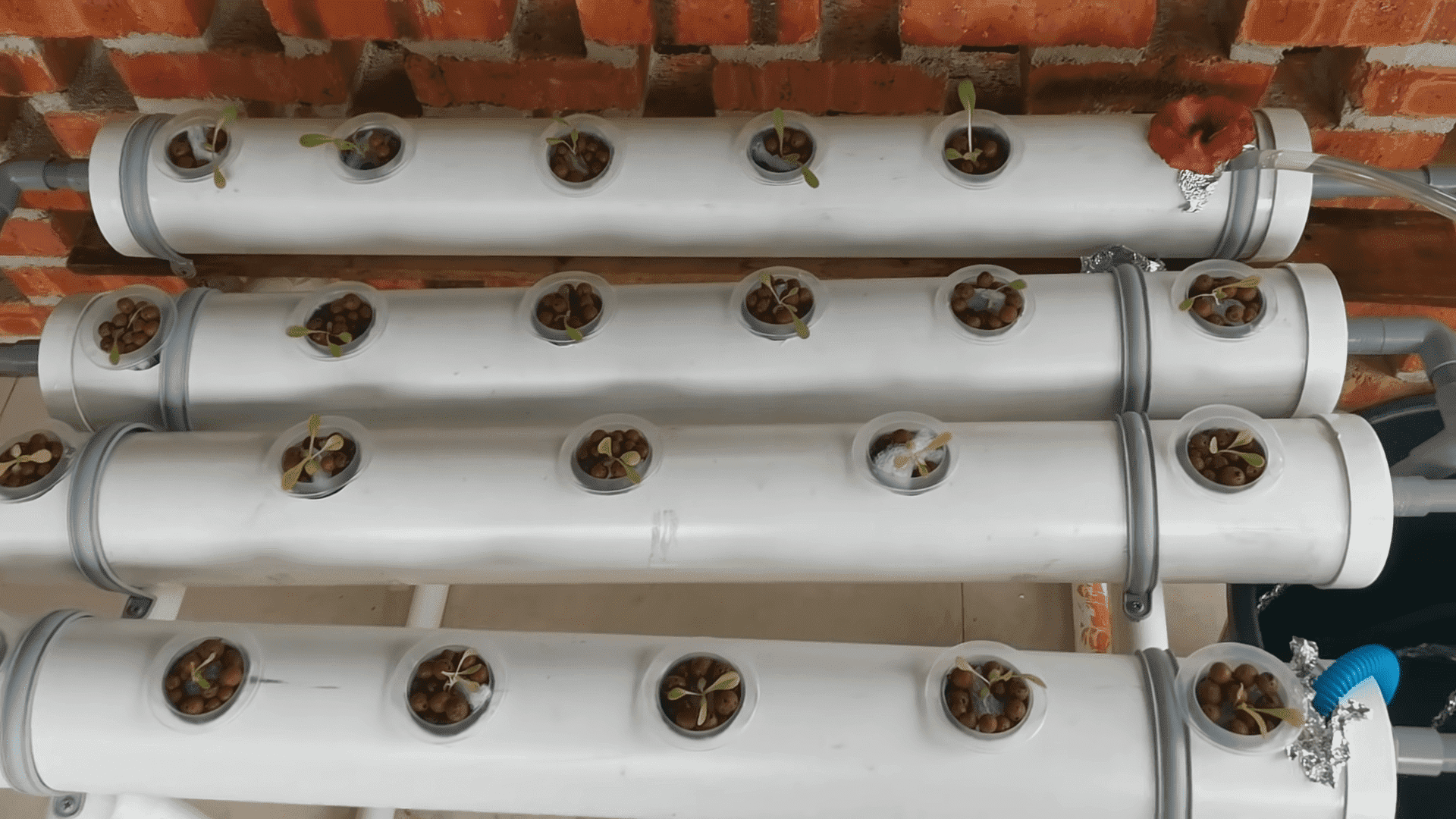
Step 6: Watch And Maintain
Start the water pump. Nutrient-rich water will flow from the reservoir to the top of the system and trickle down, bathing the roots of your plants. This is the heart of your hydroponics system.
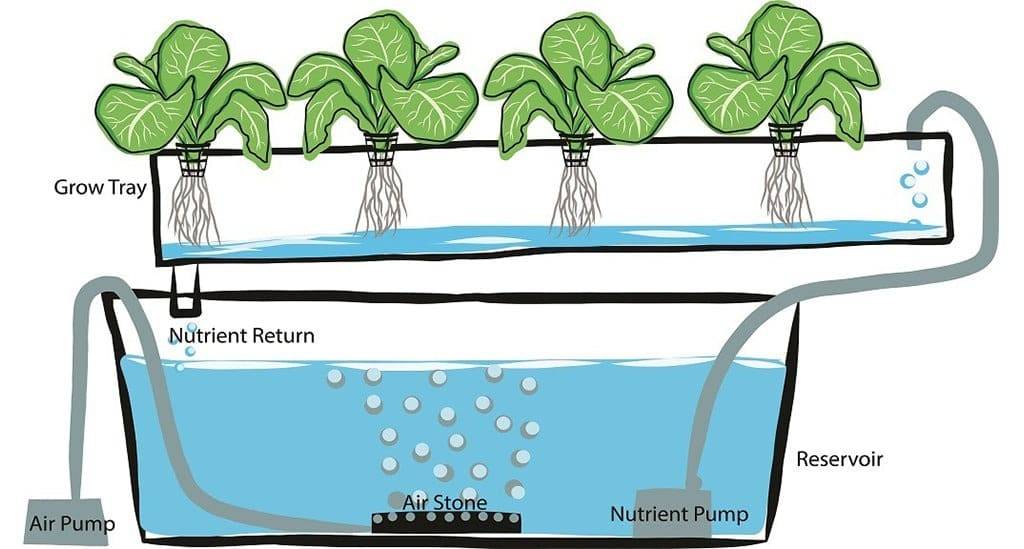
What A DIY Hydroponics Growing System Brings To You
1. Water Efficiency
In a world where water conservation is paramount, hydroponics shines. Your DIY hydroponics system uses up to 90% less water than traditional soil gardening as it recirculates the water, allowing your plants to sip what they need and return the rest. Less waste, more growth – that’s a win for your garden and the environment.
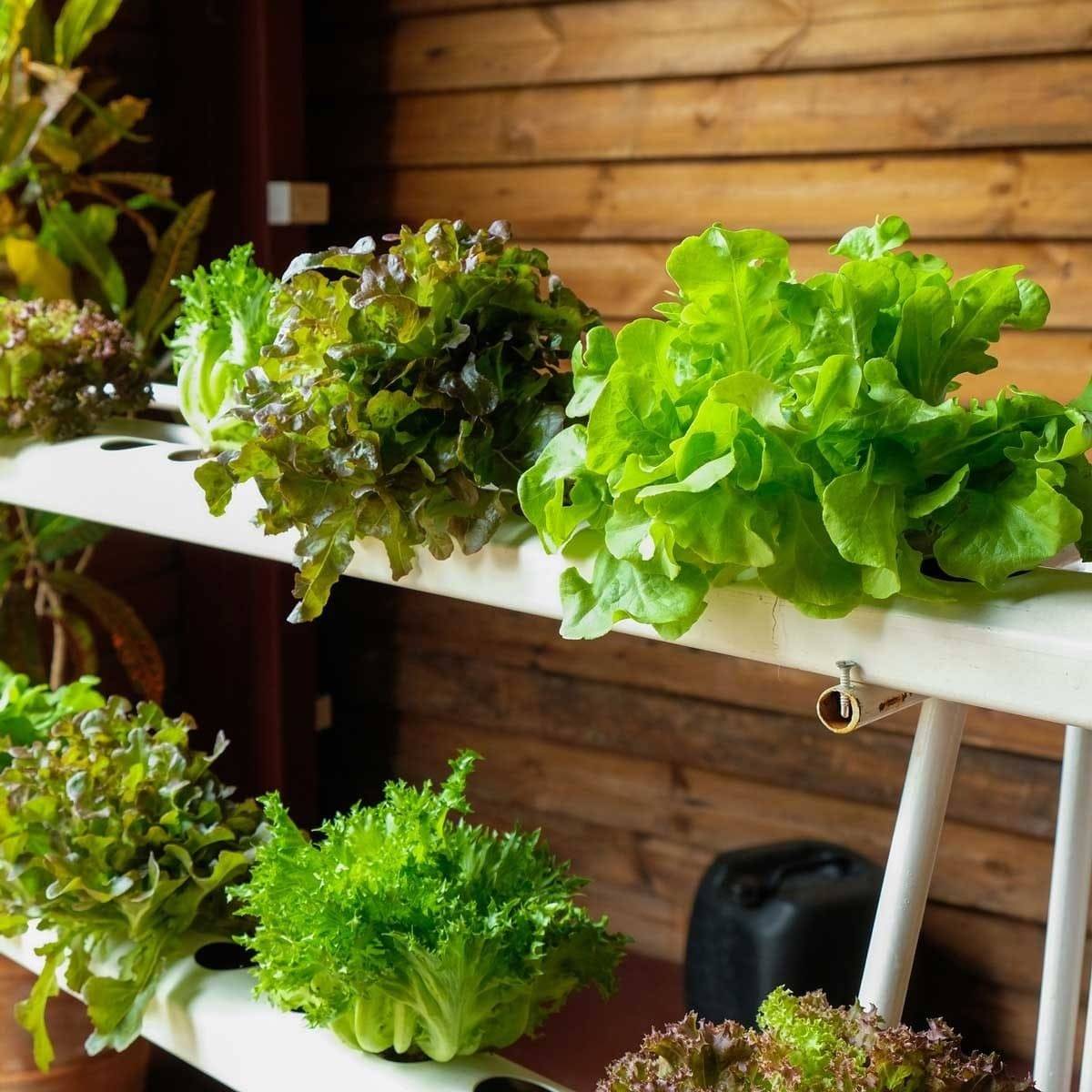
2. Year-Round Growing
With hydroponics, you can totally control the game. Seasonal limitations vanish as you create the ideal environment for your plants. Consistent light, temperature, and humidity ensure a year-round harvest. Thanks to it, you can pick fresh tomatoes in the dead of winter – hydroponics makes this dream a delicious reality.
3. Space Maximization
No garden? No problem! Hydroponics optimizes space utilization. Vertical towers, wall-mounted systems, or even a corner of your kitchen can transform into a thriving garden. You’re not bound by square footage or climate. Whether you live in a studio apartment or a sprawling estate, hydroponics makes the most of your space.
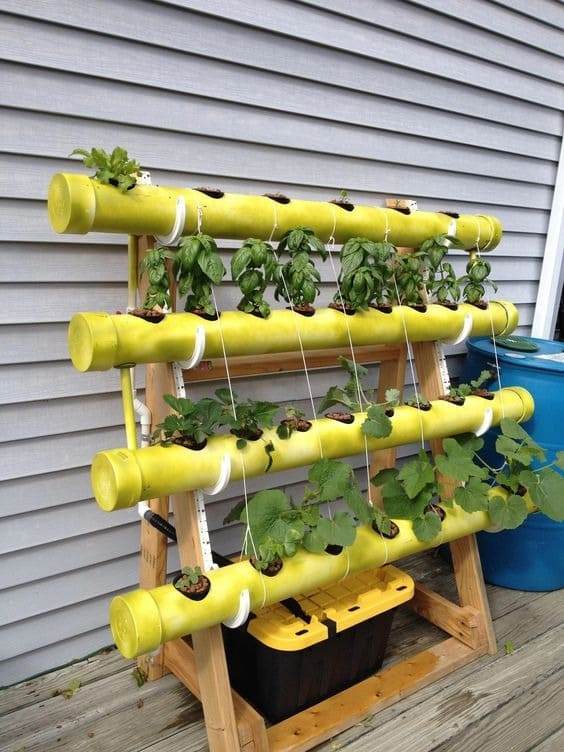
4. Faster Growth and Higher Yields
Without the struggle for nutrients, hydroponic plants channel their energy into rapid growth and abundant harvests. You’ll witness your plants mature up to 25% faster than their soil-bound counterparts. The more you grow, the more you can enjoy the fruits (or veggies) of your labor.
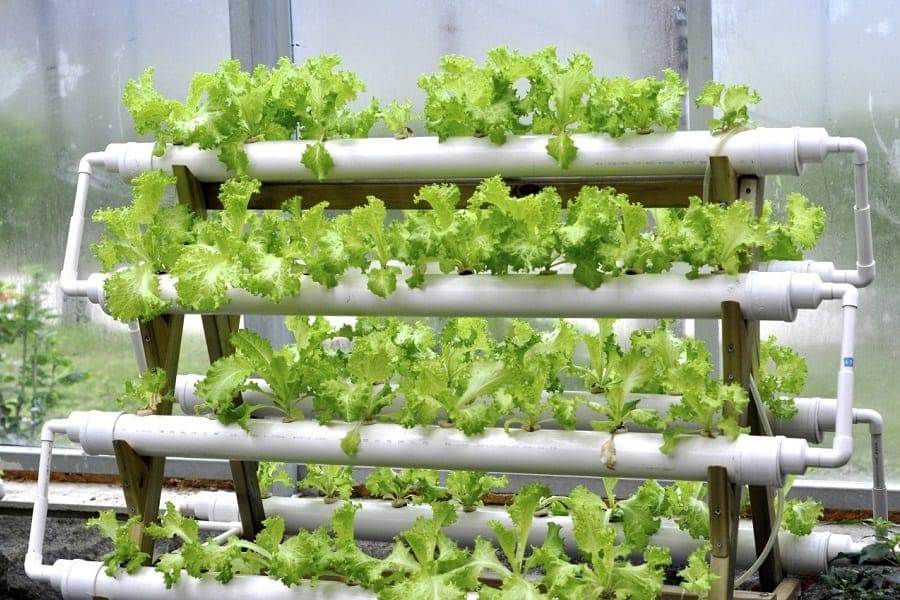
Other Tips For Success
1. Start Simple
If you’re new to hydroponics, begin with a straightforward system like the Kratky method. It’s a non-circulating system, so it’s easy to set up and maintain. As you gain experience, you can explore more complex systems.
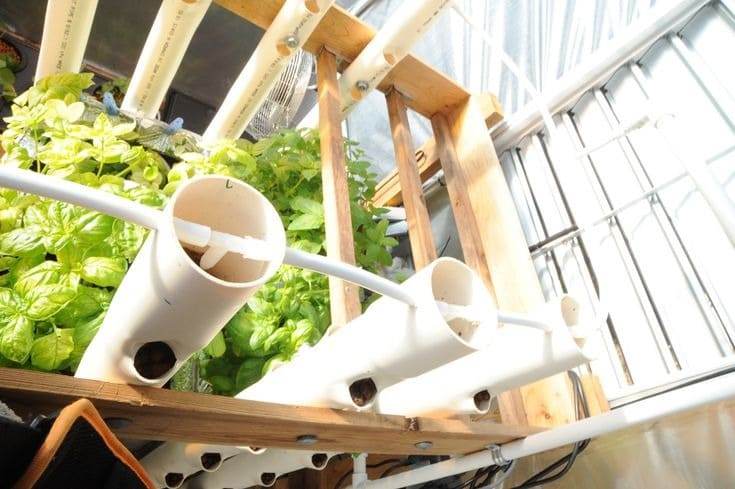
2. Monitor Nutrient Levels
Maintaining proper nutrient levels is essential. It’s important to invest in a good-quality pH and electrical conductivity (EC) meter to keep an eye on your nutrient solution.
3. Adequate Lighting
Plants need light to photosynthesize, so ensure they get the right amount. LED or fluorescent lights work well for hydroponics. Just remember to adjust the light’s intensity and duration as your plants grow.
4. Disease Prevention
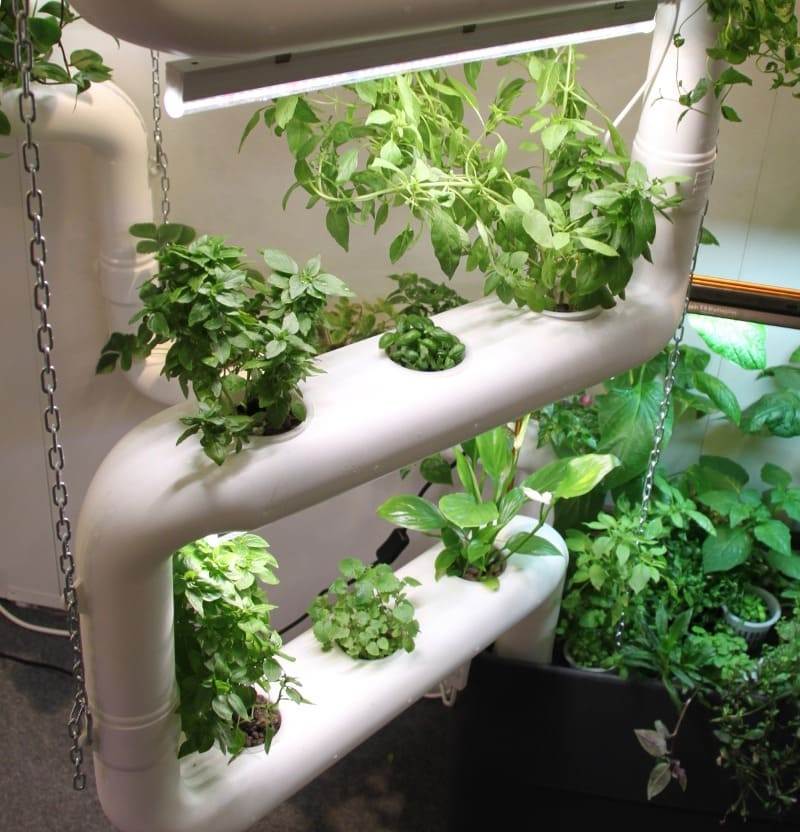
Hydroponics systems can be susceptible to diseases, so keep your equipment clean and ensure good ventilation to minimize the risk. Isolating any sick plants to prevent the spread of infections is also essential.
Your DIY hydroponics growing system can bring a green revolution to your gardening journey. With water conservation, year-round growth, space optimization, and turbocharged yields, the benefits are bountiful. Just remember, start simple, monitor your nutrient levels, provide adequate lighting, and stay vigilant about disease prevention are all you need to enjoy all year-round fresh crops.
